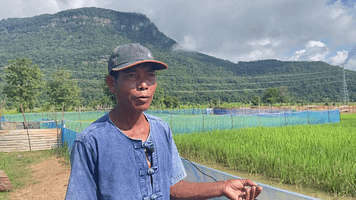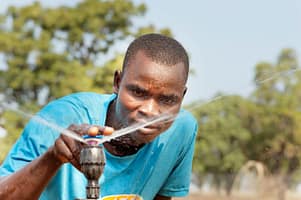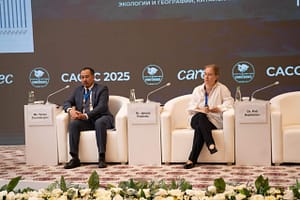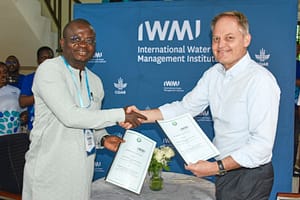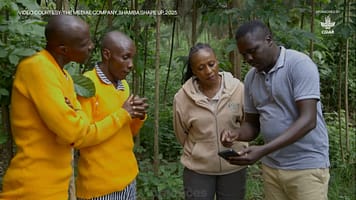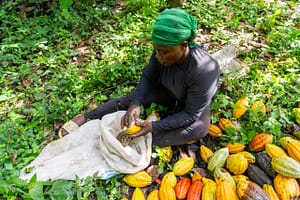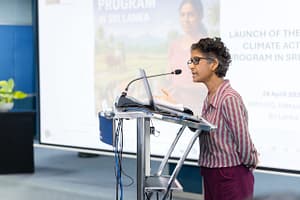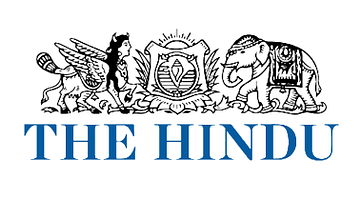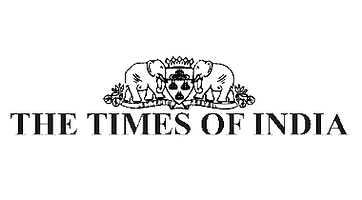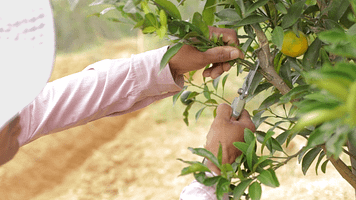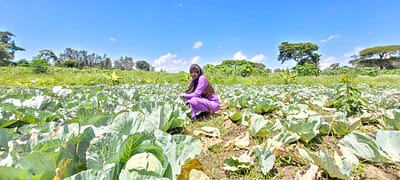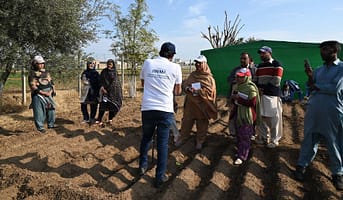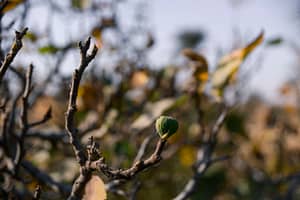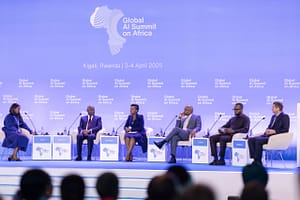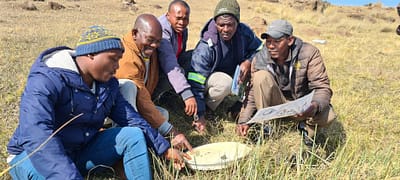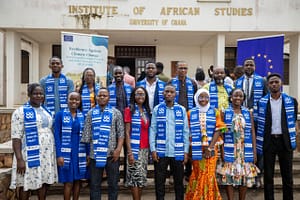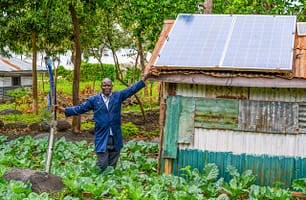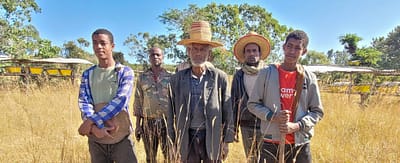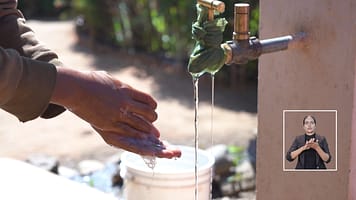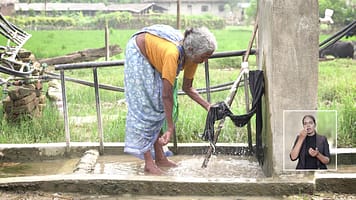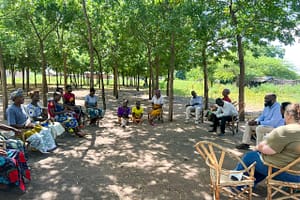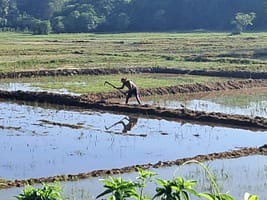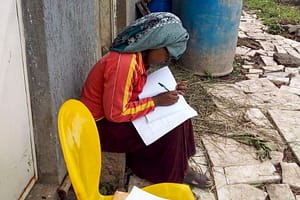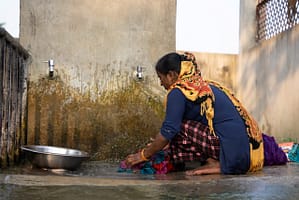All Categories News (459) Explainers (5) Features (168) In the media (235) Press releases (81) Publications (48) Specials (0) Annual reports (6) Blogs (307) From the DG (6) Multimedia (0) Infographics (3) Photos (6) Podcasts (10) Videos (48)
All Locations Africa (454) Algeria (1) Angola (1) Benin (3) Botswana (6) Burkina Faso (9) Burundi (1) Chad (1) Côte d’Ivoire (4) Democratic Republic of the Congo (1) Egypt (38) Ethiopia (83) Gambia (1) Ghana (84) Kenya (28) Lesotho (1) Libya (3) Malawi (9) Mali (6) Morocco (18) Mozambique (8) Namibia (3) Niger (1) Nigeria (23) Rwanda (5) Senegal (4) Sierra Leone (1) South Africa (34) Sudan (3) Togo (2) Tunisia (10) Uganda (8) United Republic of Tanzania (5) Zambia (34) Zimbabwe (18) Americas (20) Brazil (2) Colombia (5) Ecuador (1) Mexico (3) Nicaragua (1) Paraguay (1) Peru (2) United States of America (3) Asia (619) Afghanistan (8) Azerbaijan (2) Bangladesh (36) Bhutan (3) Cambodia (6) China (17) India (136) Indonesia (1) Iran (2) Iraq (4) Japan (2) Jordan (33) Kazakhstan (2) Kyrgyzstan (4) Lao PDR (18) Lebanon (12) Malaysia (1) Myanmar (14) Nepal (99) Pakistan (93) Philippines (1) Saudi Arabia (8) Sri Lanka (152) Syrian Arab Republic (3) Tajikistan (10) Thailand (1) Turkmenistan (2) United Arab Emirates (16) Uzbekistan (19) Viet Nam (4) Yemen (5) Europe (5) Italy (1) Netherlands (1) Spain (2) Sweden (1) Ukraine (1) Global (133) Oceania (4) Australia (3) Fiji (1)
All Research Non-research (8) Water data science (173) Water data science for action (75) Water futures data and analytics (39) Water, climate change and resilience (424) Climate mitigation and adaptation pathways (260) Climate policies, finance and processes (42) Fragility, conflict, livelihoods and water (19) Water, food and ecosystems (377) Agricultural water management transformations (43) Integrated basin and aquifer management (27) Next generation irrigation systems (125) Sustainable water infrastructure and ecosystems (93) Water, food, energy nexus (85) Water, growth and inclusion (350) Economics and impact assessment (31) Gender equality and social inclusion (167) Integrated circular economy transformations (55) Water governance and political economy (44)
All Funders & Partners Africa Group of Negotiators Expert Support (1) African Development Bank (AfDB) (2) African Minister’s Council on Water (AMCOW) (1) African Union (1) African Union Commission (1) Agriculture And Climate Risk Enterprise (ACRE Africa) (1) Alliance for a Green Revolution in Africa (AGRA) (1) Alliance for Global Water Adaptation (AGWA) (6) Aquaporo (2) Arab Water Council (1) Arup (3) Asian Development Bank (ADB) (4) Association of International Research and Development Centers for Agriculture (AIRCA) (6) Centre for Agriculture and Bioscience International (CABI) (1) International Centre for Integrated Mountain Development (ICIMOD) (5) Australia’s Department of Foreign Affairs and Trade (DFAT) (9) Water for Women Fund (3) Australian Centre for International Agricultural Research (ACIAR) (8) Australian Water Partnership (AWP) (4) Bagmati Welfare Society (1) BAIF Development Research Foundation (1) Bangladesh’s Ministry of Agriculture (1) Bangladesh Agricultural Research Council (BARC) (1) Bill & Melinda Gates Foundation (9) CARE (1) Center for Environment and Development for the Arab Region and Europe (CEDARE) (1) Centre for Poverty Analysis (CEPA) (1) Cewas (1) CGIAR (353) Alliance of Bioversity International and CIAT (10) Center for International Forestry Research and World Agroforestry (CIFOR-ICRAF) (2) International Center for Agricultural Research in the Dry Areas (ICARDA) (4) International Crops Research Institute for the Semi-Arid Tropics (ICRISAT) (1) International Food Policy Research Institute (IFPRI) (16) International Livestock Research Institute (ILRI) (2) International Maize and Wheat Improvement Center (CIMMYT) (9) International Potato Center (CIP) (1) International Rice Research Institute (IRRI) (14) WorldFish (8) Chrysalis (1) Climate Centre (2) Columbia University (1) Cornell University (1) Council on Energy, Environment and Water (CEEW) (1) Deltares (3) Deutsche Gesellschaft fuer Internationale Zusammenarbeit (GIZ) GmbH (7) Digital Earth Africa (5) Economic Community of West African States (ECOWAS) (1) European Union (EU) (18) European Commission (10) Everest Club (2) Expertise France (1) Farm Africa (1) Field Ornithology Group of Sri Lanka (FoGSL) (1) Germany’s Federal Ministry for Economic Cooperation and Development (BMZ) (8) Ghana’s Ministry of Environment, Science, Technology and Innovation (1) Ghana’s Council for Scientific and Industrial Research (CSIR) (1) Ghana’s Ministry of Food and Agriculture (MoFA) (2) Ghana Irrigation Development Authority (GIDA) (1) Global Affairs Canada (1) Global Commission on the Economics of Water (1) Global Environment Facility (GEF) (4) Global Green Growth Institute (GGGI) (1) Global Institute for Interdisciplinary Studies (1) Global Resilience Partnership (GRP) (1) Global Water Partnership (GWP) (18) Google.org (8) Green Climate Fund (GCF) (1) GroundTruth (1) Hawassa University (5) Helmsley Charitable Trust (13) iDE (1) IHE Delft Institute for Water Education (6) India’s Ministry of Agriculture and Farmers Welfare (8) Indian Council of Agricultural Research (ICAR) (7) Borlaug Institute for South Asia (BISA) (1) Central Arid Zone Research Institute (CAZRI) (1) Central Research Institute for Dryland Agriculture (CRIDA) (1) India’s Ministry of Jal Shakti (1) Indian Space Research Organisation (ISRO) (1) Institute of Development Studies (IDS) (1) Inter-American Development Bank (IDB) (1) International Dryland Development Commission (IDDC) (1) International Federation of Red Cross and Red Crescent Societies (IFRC) (2) International Fund for Agricultural Development (IFAD) (8) International Institute for Applied Systems Analysis (IIASA) (1) International Union for Conservation of Nature (IUCN) (5) International Water Association (IWA) (3) International Water Resources Association (IWRA) (1) Interstate Commission for Water Coordination of Central Asia (ICWC) (1) Scientific-Information Center (SIC) (1) Japan’s Ministry of Agriculture, Forestry and Fisheries (MAFF) (7) Jordan’s Ministry of Agriculture (1) Kenya Agricultural & Livestock Research Organization (KALRO) (1) Kwame Nkrumah University of Science and Technology (1) League of Arab States (1) Arab Organization for Agricultural Development (AOAD) (1) Limpopo Watercourse Commission (LIMCOM) (2) McGill University (1) Mercy Corps (2) Ministry of Economic Affairs and Climate Policy of the Netherlands (1) Netherlands Enterprise Agency (RVO) (1) National Agriculture Research Center (1) National Association for Rural Municipalities in Nepal (1) NDC Partnership (1) Nepal Water Conservation Foundation (NWCF) (1) Nepal’s Ministry of Energy, Water Resources and Irrigation (2) Nepal’s Department of Hydrology and Meteorology (DHM) (1) Netherlands Food Partnership (NFP) (1) Netherlands Water Partnership (NWP) (1) Norwegian Agency for Development Cooperation (NORAD) (4) Organisation for Economic Co-operation and Development (OECD) (1) Pakistan Council of Research in Water Resources (PCRWR) (2) Pakistan Ministry of Climate Change and Environmental Coordination (MOCC) (1) Regional Environmental Centre for Central Asia (CAREC) (1) Resurgence (2) Schlumberger Faculty for the Future Stitching Fund (1) Sierra Leone’s Ministry of Water Resources (1) National Water Resources Management Agency (NWRMA) (1) SNV Netherlands Development Organisation (4) South Asian Association for Regional Cooperation (SAARC) (1) South China Agricultural University (SCAU) (1) Sri Lanka’s Ministry of Agriculture (6) Sri Lanka’s Department of Agrarian Development (3) Sri Lanka’s Ministry of Defence (6) Sri Lanka’s Disaster Management Division (5) Sri Lanka’s Disaster Management Centre (5) Sri Lanka’s Ministry of Environment (3) Sri Lanka’s Ministry of Finance, Planning and Economic Development (1) Sri Lanka’s Department of National Planning (1) Sri Lanka’s Ministry of Irrigation (2) Sri Lanka’s Ministry of Mahaweli Development and Environment (1) Sri Lanka’s Ministry of Technology (4) Arthur C. Clarke Institute for Modern Technologies (ACCIMT) (1) National Research Council of Sri Lanka (NRC) (2) Stockholm Environment Institute (SEI) (3) Stockholm International Water Institute (SIWI) (3) SunCulture (1) Swedish International Development Agency (SIDA) (3) Swedish University of Agricultural Sciences (SLU) (1) Swiss Agency for Development and Cooperation (SDC) (12) Tata Trusts (23) Total LandCare (1) Tribhuvan University (1) UK Research and Innovation (UKRI) (2) UK’s Department for Science, Innovation and Technology (1) UK Met Office (2) UK’s Foreign, Commonwealth & Development Office (FCDO) (44) United Nations (UN) (75) Food and Agriculture Organization of the United Nations (FAO) (23) Intergovernmental Panel on Climate Change (IPCC) (1) Intergovernmental Science-Policy Platform on Biodiversity and Ecosystem Services (IPBES) (1) International Organization for Migration (IOM) (2) International Telecommunication Union (ITU) (1) Risk-informed Early Action Partnership (REAP) (1) UN Environment Programme (UNEP) (6) UN-Water (3) United Nations Children’s Fund (UNICEF) (7) United Nations Convention to Combat Desertification (UNCCD) (1) International Drought Resilience Alliance (IDRA) (2) United Nations Development Programme (UNDP) (3) United Nations Economic and Social Commission for Asia and the Pacific (1) United Nations Economic and Social Commission for Western Asia (ESCWA) (1) United Nations Educational, Scientific and Cultural Organization (UNESCO) (1) United Nations Framework Convention on Climate Change (UNFCCC) (6) United Nations Office for Disaster Risk Reduction (UNDRR) (1) Coalition for Disaster Resilient Infrastructure (1) United Nations Office for Outer Space Affairs (UNOOSA) (1) United Nations Office for the Coordination of Humanitarian Affairs (UN OCHA) (2) United Nations Population Fund (UNFPA) (1) World Food Programme (WFP) (10) World Meteorological Organization (WMO) (1) COPE Disaster Champions (1) United States Agency for International Development (USAID) (64) Feed the Future (2) United States Department of State (1) University of Aberdeen (5) University of London (1) School of Oriental and African Studies (SOAS) (1) University of Manchester (1) University of Nebraska (11) Daugherty Water for Food Global Institute (12) Water Research Commission (WRC) of South Africa (1) Wellcome Trust (2) World Bank (83) International Development Association (IDA) (1) World Economic Forum (2) World Farmers’ Organization (WFO) (1) World Vision (6) Department of Water Resources (DWR) (2) National Oceanic and Atmospheric Administration (NOAA) (1) Southern African Dvelopment Community – Groundwater Management Institute (SADC-GMI) (1)
Sort by date Newest first Oldest first
May 30, 2025
In Lao PDR's Sanamxay district, the International Water Management Institute (IWMI), through the CGIAR Initiative on Agroecology, is helping farmers adopt integrated rice-fish farming to enhance food security and nutrition
May 27, 2025
Water plays a critical role in the African Union’s vision of a global economic power. On this Africa Day, IWMI reflects on its contribution to the continent’s sustainable development, food
May 26, 2025
During the recent Central Asian Climate Change Conference, stakeholders committed to regional collaboration and accelerating adaption strategies in Central Asia.
May 23, 2025
Memoranda of Understanding (MoUs) with ECOWAS and Sierra Leone’s water agency signal regional commitment to science-driven water governance.
May 22, 2025
IWMI Deputy Director-General Rachel McDonnell discusses how climate information systems deliver vital weather and crop insights to farmers in the Devex Decoding Food Systems series.
May 20, 2025
Roundup of research, journal and other academic articles from March and April 2025.
May 19, 2025
National stakeholders committed to scaling climate adaptation and resilience at the launch of the CGIAR Climate Action Program at IWMI’s Headquarters in Colombo.
May 17, 2025
CGIAR climate action plan in India's Tamil Nadu to boost drought and flood resilience.
May 16, 2025
IWMI launches a new climate action program in Odisha to address extreme weather threats and enhance rural resilience.
May 16, 2025
As part of the CGIAR Better Diets and Nutrition Program, IWMI has partnered with the Department of Agriculture, Sri Lanka and the World Vegetable Center to raise awareness on the
May 15, 2025
After migrating three times, Senya started an irrigation-based vegetable farming business; today, she is a role model for young people in her rural community to pursue domestic opportunities.
May 14, 2025
Farmers in Chakwal are increasingly adopting innovative solutions such as soil moisture sensors that allow them to manage water resources efficiently while achieving better crop yields.
May 13, 2025
In the Middle East and North Africa (MENA), water is often a casualty of political instability, with access disrupted by conflict and poor governance. IWMI's new framework offers a path
May 12, 2025
At the first Global AI Summit on Africa, IWMI joined leaders, policymakers and innovators from more than 95 countries to explore the potential of Artificial Intelligence to scale existing water
May 9, 2025
IWMI looks to citizen science to improve agroecology implementation in Africa and beyond.
May 7, 2025
Students research the intersection of climate resilience, gender, migration, and social transformation in northern Ghana, and develop skills to drive climate-resilient solutions and make policy recommendations.
May 6, 2025
The pioneering partnership aims to scale solar irrigation for climate-resilient agriculture and safeguard Kenya’s water resources.
May 1, 2025
In the Great Rift Valley in Ethiopia, an intergenerational beekeeping business generates benefits for over 200 households.
April 30, 2025
In the rural municipalities of Mahabu and Dungeshwor in Dailekh district IWMI works to enhance inclusive, climate-resilient rural WASH services.
April 30, 2025
IWMI promotes inclusive, climate-resilient WASH services, with a focus on sanitation and governance, in the rural municipalities of Ramnagar and Parsa in Nepal's Sarlahi district.
April 30, 2025
The Groundwater for aDvancing Resilience in Africa (G4DR) project unites partners across Benin, Malawi, Mozambique, Togo, and Uganda to enhance water security and resilience of communities.
April 29, 2025
IWMI researchers explore the feasibility of an agricultural revolution in Sri Lanka.
April 25, 2025
A team of community members, researchers, and experts from the Addis Ababa Water and Sewerage Authority and the Ethiopian Meteorological Institute have joined forces to tackle community resilience through a
April 24, 2025
IWMI and partners identified five main shifts needed to truly ensure access to water, sanitation, and hygiene (WASH) for all.


